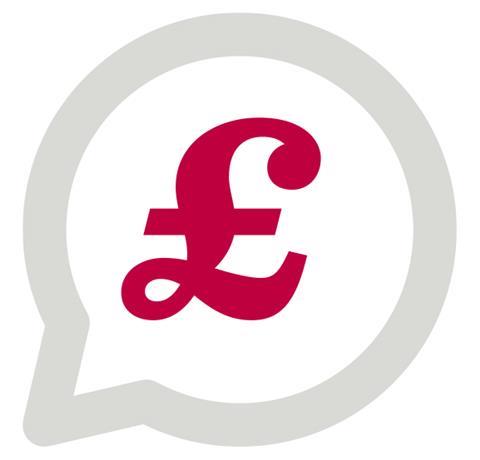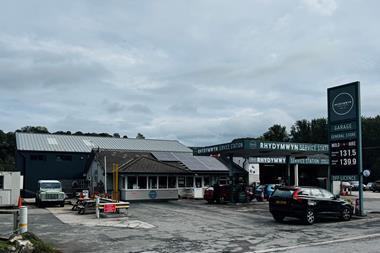The petrol retailing industry should give itself a pat on the back for being among the unsung heroes on the frontline in 2020

Twelve months ago, not a single crystal ball showed a picture where cinemas and sports grounds were closed for most of the year; where foreign travel effectively ceased for most of the population; and where holding a wedding or birthday party with more than a prescribed number of guests in attendance could land you a £10,000 fine. Nor had anyone predicted the return of ‘last orders’ in the pub before closing time at 10pm – that is if you are lucky enough to find a pub still trading. Very few people in the British Isles had heard of the word ‘furlough’ – it was an old-fashioned word which in this country referred to military personnel on home leave, which had fallen out of use after WW1. How much can change in one short year.
Back to today. England in lockdown mark two; Scotland, Wales and Northern Ireland each with their own restrictions in place. Depending on one’s point of view, that’s either local/national democracy at work, or just another sign of the chaotic times we’re in. For anyone trying to run a physical business – retailing, just for example – which covers more than one of these areas it makes planning even more difficult. At least Chancellor Sunak has taken one bold decision which should help many businesses with their financial planning: the Job Retention Scheme has been extended until the end of March 2021.
The scheme was originally introduced in March 2020 and was due to last for four months. It was then extended to October 31. By the end of next March, the government will have been paying around 80% of wages for millions of furloughed individuals for more than a year.
There’s been some speculation as to just why the Chancellor announced this very long extension so early. After all, the optimists hope that the current variations of lockdown will all be eased before Christmas. The same optimists have been predicting the coming of ‘The Vaccine’ since last spring. The more pessimistic among us could point out that science has been trying to find a vaccine for the common cold for at least the last 70 years. Presumably the Chancellor is one of the pessimists: he realises that even if the optimists are right about a Covid vaccine, the damage already suffered by large sectors of the economy won’t suddenly be undone.
Nobody knows how long it will take for consumers to go back out and spend. In fact, nobody can be sure just how many consumers will still have jobs in early 2021 so that they can pay for the spending that’s needed to kick start the old ‘normal’ economy that we had in 2019.
Leaving the EU
Of course, there’s another unknown in all this. Back in the early weeks of this year the government was keen to point out that we ‘left the EU on January 31’ (2020). Well, sort of. The reality is that we didn’t really leave the EU in January 2020 in any practical sense. No new customs tariffs were imposed or border checks were needed in 2020; no, that doesn’t happen until January 2021. Perhaps the Chancellor has looked into his own special crystal ball and found another good reason to prolong the Job Retention Scheme.
And so, to the petrol retail industry. We have to acknowledge that this industry has suffered during 2020. Without precise annual figures yet, it’s still a fair guesstimate that overall fuel sales will be down by somewhere in the range of 25% to 35% compared to 2019. That’s a sizeable chunk, even as an average, before looking at any regional variations which could well have some areas showing rather larger losses. And there have been additional costs for the industry so that it could continue trading while other retailers were closed. On the brighter side, many petrol retailers have noted a reasonable increase in shop sales which has at least partly offset the drop in fuel.
Another positive factor for petrol retailers is that many were also able to take advantage of the various support schemes that were open to them in common with other sectors.
Unsung heroes
For much of 2020 we’ve seen government spokespeople, media personalities and so on regularly hail ‘frontline workers’ keeping daily life functioning as much as possible. They’ve tended to refer to health workers (quite correctly) and then talk about warehouse, distribution and delivery people. All, of course, deserve thanks. But not once does anyone seem to have included the owners and staff at forecourts within this category. Even though, when many public places were closed, when ‘essential’ shops had queues outside, petrol retailers were open, serving their local community as some of the few shops that hadn’t run out of daily essentials. Not to mention providing fuel for the essential services so that they could do their jobs.
So, if no-one else will do it, perhaps the petrol retailing industry should give itself a pat on the back for being among the unsung heroes on the frontline in 2020.
EKW Group provides accounting and payroll solutions for independent petroleum and convenience dealers, including fully outsourced accounting options:
ekwgroup.co.uk
01942 816512

































No comments yet